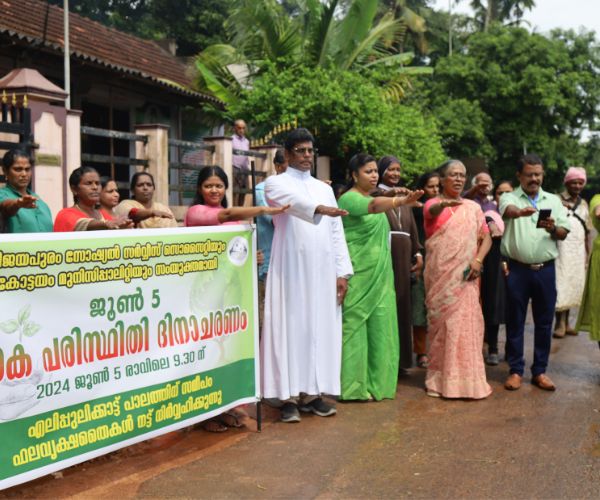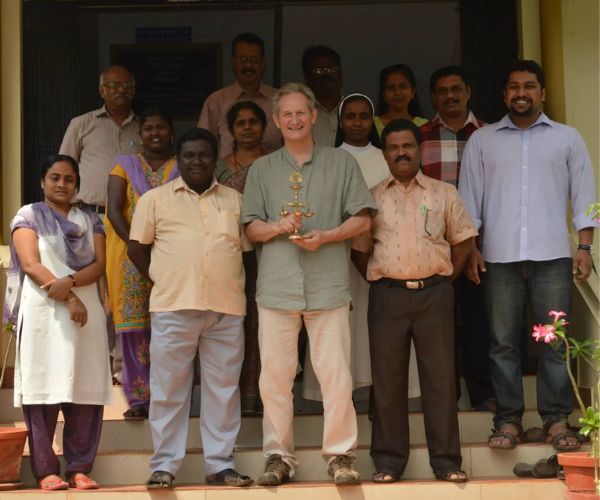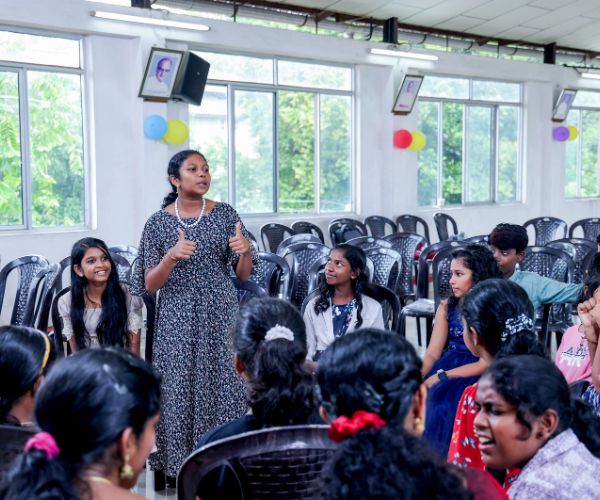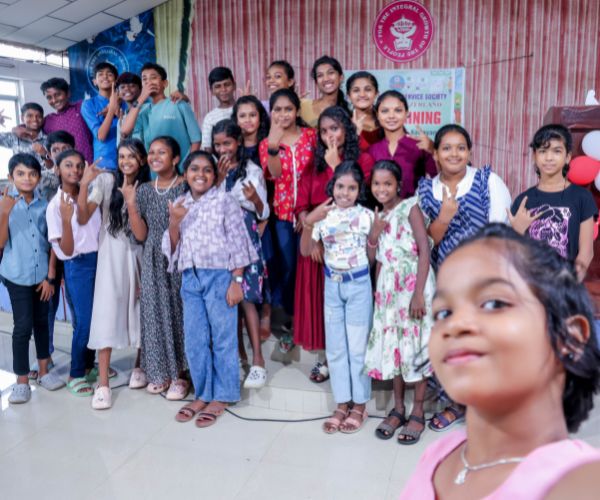About Us
- Home
- /
- About Us
A help to those who need it
About Vijayapuram Social Service Society
Our Service Areas
Kottayam
Idukki
Ernakulam
Alappuzha
Pathanamthitta








An Introduction to
VSSS
The area of the Diocese of Vijayapuram that spreads over an area of 900 sq.km. covering the Revenue Districts of Kottayam and Idukki in full and Alapuzha, Ernakulam and Pathanamthitta in part,was originally a part of the ancient Apostolic Vicariate of Verapoly, presently the Archdiocese of Verapoly. In 1930 this portion of the Vicariate was bifurcated and formed a new Diocese, Vijayapuram.
As for the Church it had been a challenging job to draw the scheduled castes and tribes out of their shell through better education, communication and employment opportunities. It was at this social scenario that Vijayapuram Social Service Society was registered a s a Charitable Society. Through various developmental programmes initiated by the Society the traditional apathy and conditions have gradually been narrowed down.

- Phase I
- Phase II
- Phase III
- Phase IV
The first prelate Bishop Bonaventura Arana was putting in his efforts to establish the diocese and at the same time to uplift the poor and marginalized people. The diocese had been rendering charitable services to the poor right from the beginning, in spite of scarcity of resources.
During the period of Bishop Ambrose Abasola OCD, the second prelate main activities continued to be providing relief, rehabilitation and acts of charity to all people who were in distress, irrespective of caste, creed or colour. But he tried to systematize all the activities of charity and welfare. Thus in 1961 Vijayapuram Social Service Society was registered under the Travancore Cochin Literary, Scientific and Charitable Societies Regulation Act, 1955 (Act XII) to take up development initiatives in a systematic and scientific way.
1971 was a period when Church-oriented developments and institutionalized programmes came to a new turning point and when the funding organizations came up with new suggestions and new ways to develop people. This was a turning point for VSSS too. Vijayapuram Social Service Society volunteered itself and took up the challenge to experiment the new philosophy of development among the socially, culturally and economically handicapped people of the diocesan area.. Basing on the problems identified through a socio economic survey we launched a PACKAGE DEVELOPMENT PROGRAMME with technical and fund support of MISEREOR Germany, covering the whole operational area. This, indeed, was a unique and pioneer venture. Planning itself took a long period of three years. Some institutional programmes were launched as Nirmala Social Institute, Amalanilayam, Mini Industrial Estate, Weaving Centres at Vanavathukara, Thiruvalla and Poovam, St.Joseph’sIndustrial Training Centre etc. to provide training and employment to youth. Some feeder units were also established as Amalambika Social Centre Thekkady, Assumption Social Centre Vandiperiyar, Sevanasadanam Social Centre Andoor, Little Flower Social Centre Kattampack. VSSS supported such institutions started by religious congregations as Holy Cross tailoring Centre, Mannackanad, Holy Cross Tailoring Centre, Vettimukal, Little Flower Tailoring Centre Pattithanam, Sacred Heart Tailoring Centre Pambanar, Regina Mundi Tailoring Centre Thiruvalla, Paripalana Tailoring Centre Vanavathukkara.
Special attention was given for the education of children. Since the parents entrusted the young ones to the care of the elder ones, when they go for work, both the children could not go to school. Therefore, we established Crèche cum play schools.
Health was another area of concentration. Rural dispensaries were promoted. Sevanalaya pambanar, Holy Cross Mannackanad, St.Martin De Porres Andoor, Paripalan Vanavathukkara, Preshjitha Rani Poovam, Nirmala Pius nagar and Snehalaya Cheenthalar were promoted during this period.
Besides the institutional programmes we promoted mini projects of individuals as piggery, poultry, sand collection, beedi rolling, goat rearing, cow rearing, bee keeping etc. Non-formal training in entrepreneurial development also were undertaken.
1986 had been an important landmark in the history of the Society. The Society had trodden twenty-five years of meritorious service to the poor. The Society having stood the test of time and proved itself, the direction the organization is called to take became more definitive, the path clearer and more sure. What has been entrusted to VSSS and the mission it is called to fulfill, is to respond to the critical and sensitive issues pertaining to human life, human dignity, personal and family life, family integrity, unity and stability, development of persons as individuals and community. Thus there had been a shift in focus from project to process – a process of release and transformation.
Now, therefore, the all-pervading purpose of development efforts has to be a struggle for justice and liberation. The thrust of this process is initiated through community organizations. Work with the poor; help them to understand the root causes behind their situation; and the source of crushing impacts upon them; encourage their self-help and concerted action; enable their organization to correct injustices, secure change in structures and win a rightful place in society. This requires analysis at both micro and macro levels.
This was a major shift causing the refashioning of VSSS’s tasks ahead. Without dismissing charity and relief approach – which is needed at all times as exceptions, we focused on political action where the bargaining power of the people is enhanced, where people seek advancement in skills. Livelihood self-management and community cooperation as important elements in the building up of power, are promoted. Therefore, from 1986, we have fixed our thrust as a process that
- Is educative in nature and promotes critical awareness of the people’s actual situation, capabilities, rights and responsibilities.
- Ensures people’s organization, people’s power and people’s action
- Is specially oriented towards the under privileged and oppressed section of society
- Is relevant to the culture, needs and natural growth of the people and creates opportunities for groups as well as individuals to share with and understand each other
- Is designed for the formation and training of the local people to become masters of their own development
- Is planned to promote the development of women, children and other weaker sections.
We have framed objectives on the three elements in the development process: 1) People need release from bondage 2) people need to be restored from being mere objects to their role as subjects in society 3) society itself needs to be transformed. Thus the objectives we envision are:
- To create awareness of the socio-economic and political conditions prevalent in the society and its implications, thus enabling the voiceless to have voice, the poor to have bases from which to fight for justice.
- To assess and analyze with the active involvement of the people as to what are the basic infrastructure and amenities necessary for them to come out of their existing situation and ensure development in various spheres of life.
- To strengthen solidarity and cooperation among the people.
- To assess scientifically the real needs of the people and devise appropriate measures so as to enable the people to help themselves. The active participation of the people will be ensured, because it is meaningless to initiate and propose any amount of development ventures for the people; but the people themselves must decide the solutions for the developmental problems of the people.
- To develop leadership within the community
- To develop a social structure that can implement all future plans of actions.
- To identify their causes and effects, of the main problems in the respective society and decide action plans at their level.
- To establish their own financial structure – Self Help Group.
- To raise the standard of living through hard work and group interaction.
“Be the Change you want to see in the world”
The process of Decentralization, Participation and Empowerment approach was adopted, which were geared around the theory of change. This envisages Sustainability through Participation Empowerment and Decentralization. Whatever be the initiative it should focus on desirable change to be brought about in the community
Now, therefore, we are enforcing the participation of the stakeholders and fix up the change or result we envision. Planning activities and strategy or methodologies, are done based on this envisioned change or result. VSSS bases its planning, implementation, monitoring and evaluation based on the envisioned change. Therefore, the changes or results are rated at monitoring and evaluation.
Further, we gear all the development initiatives around the four strategic pillars proposed in the teachings of the Church and envisioned in the Acts of the Apostles, Empowering Animation, Volunteerism, Dialogue and a caring and sharing Community. This indeed is a leap into a total shift. This is a process wherein the participation and cooperation of all stakeholders are sine qua non.
Objectives
- To promote, conduct, facilitate and co-ordinate development and social welfare activities for the poor and the needy irrespective of caste, creed, gender and community.
- To promote and strengthen people’s organizations for community development.
- To empower women and the other weaker sections in order to ensure their creative participation in community development.
- To conserve and regenerate natural resources towards sustainable development of humanity.
- To establish linkages and collaboration with the Government and other actors of community development.
- To promote collective learning and sharing of resources, dissemination of information and technology for sustainable development.

- To initiate rehabilitation programmes for the physically handicapped, the mentally retarded, the aged and those affected by natural and manmade calamities.
- To organize and train children for integral development.
- To promote alternative health care systems and an eco-friendly lifestyle.
- To promote vocational skill training, formal and higher education.
- To facilitate and support infrastructure development.
- To promote income generating activities among women and other weaker sections of the people.
- To facilitate the struggle for social justice.